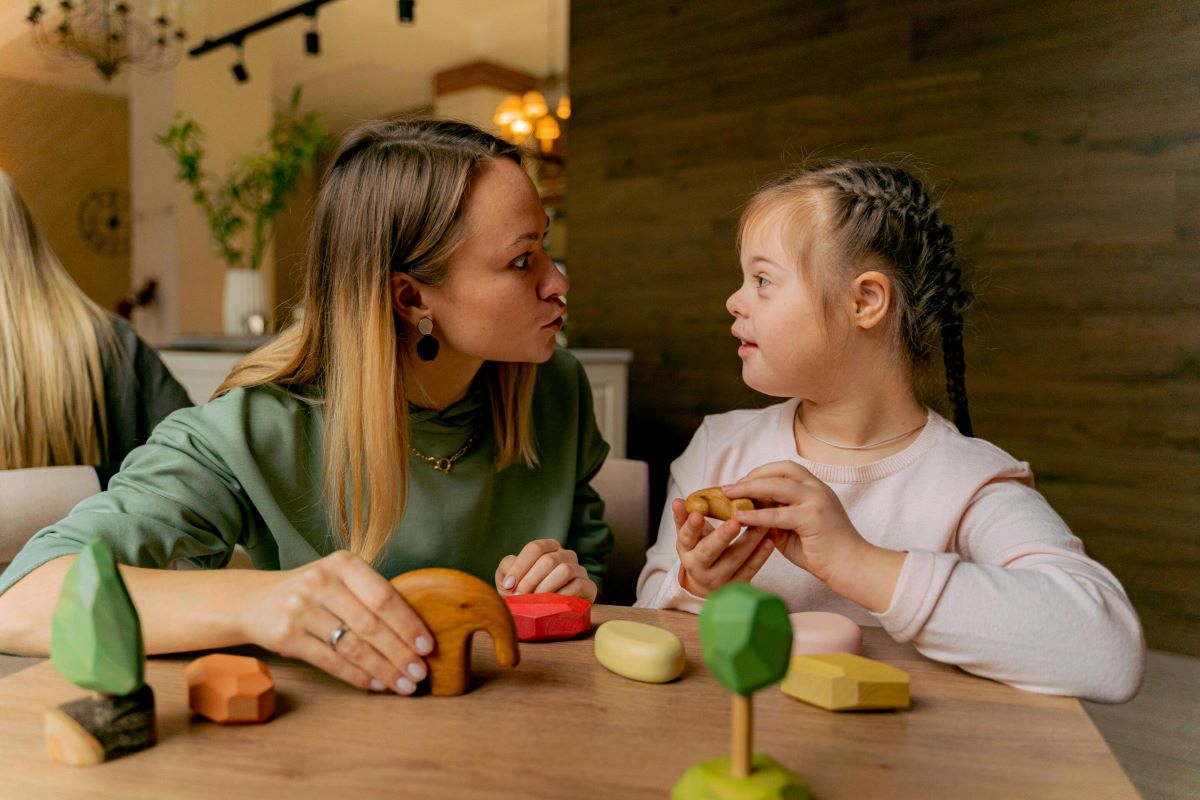Speech therapy plays a vital role in supporting individuals with communication challenges across Australia. The National Disability Insurance Scheme (NDIS) makes these essential services accessible to eligible participants through funded support packages.
Local speech therapy services create meaningful impact by:
- Building strong therapeutic relationships through regular face-to-face sessions
- Understanding unique community contexts and cultural needs
- Providing convenient access for families and carers
- Enabling collaboration with schools, childcare centres and other local support services
- Reducing travel time and associated stress
The NDIS empowers participants to choose registered providers in their area who best match their specific needs and goals. This localised approach ensures therapy can occur in natural settings – from homes to schools to community spaces – maximising engagement and progress.
Finding the right local NDIS speech therapy near me creates the foundation for improved communication outcomes and enhanced participation in daily life. The key lies in understanding how to access and utilise these valuable services effectively within your community.
Understanding NDIS and Speech Therapy
The National Disability Insurance Scheme (NDIS) is Australia’s first national approach to disability support. It provides funding for essential services, including speech therapy. This comprehensive scheme enables participants to access personalised support plans tailored to their specific needs and goals.
NDIS Eligibility Requirements for Speech Therapy:
- Age requirements: Under 65 years at time of application
- Residency status: Australian citizen or permanent resident
- Disability impact: Permanent and significant effect on daily activities
- Early intervention needs: Support reduces future needs
Speech therapy through NDIS addresses various communication challenges, including language disorders, which can have a significant impact on a child’s development if not addressed early. Other areas of focus may include:
- Speech sound difficulties
- Social communication skills
- Literacy development
- Swallowing disorders
- Alternative communication methods
The impact of NDIS-funded speech therapy extends beyond basic communication skills. Children receiving early intervention often experience:
- Enhanced social interactions
- Improved academic performance
- Increased confidence in daily activities
- Better family relationships
- Stronger peer connections
- Greater independence
Speech therapy services under NDIS adapt to each participant’s unique circumstances, delivering support in various settings:
- Home environments
- Educational facilities
- Community spaces
- Clinical settings
- Group therapy sessions
These therapeutic interventions create lasting positive changes in participants’ lives, supporting their journey toward improved communication and enhanced participation in daily activities.
Accessing Local Support through NDIS
Local Area Coordinators (LACs) and Early Childhood Partners serve as essential guides in connecting individuals with NDIS-funded speech therapy services. These dedicated professionals help navigate the complexities of accessing local support and ensure a streamlined journey towards receiving appropriate care.
The Role of Local Area Coordinators
Local Area Coordinators play a crucial role in assisting individuals with their NDIS journey. Their responsibilities include:
- Providing information about available speech therapy services
- Helping identify suitable local providers
- Assisting with planning and goal-setting
- Supporting the coordination of multiple services
- Monitoring progress and adjusting support as needed
Early Childhood Partners
Early Childhood Partners specialise in supporting young children and their families. Their key functions involve:
- Specialising in supporting children aged 0-6 years
- Offering developmental guidance and assessments
- Connecting families with appropriate early intervention services
- Providing short-term early intervention where needed
Application Process for NDIS Speech Therapy
The application process for accessing NDIS-funded speech therapy involves several stages:
1. Initial Contact
This is where you reach out to the NDIS to express your interest in accessing speech therapy services.
- Contact NDIS directly or through an LAC
- Schedule an initial meeting to discuss needs
2. Assessment Phase
During this phase, the NDIS will gather information about your specific requirements.
- Complete necessary paperwork
- Provide supporting documentation from health professionals
- Undergo required assessments
3. Planning Meeting
In this meeting, you’ll discuss your goals and support needs with an NDIS representative.
- Meet with NDIS representative
- Discuss goals and support needs
- Determine funding allocation
4. Provider Selection
Once you have a clear understanding of your funding, you can start researching local speech therapy providers.
- Research local registered providers
- Consider provider specialties and experience
- Schedule initial consultations
5. Service Agreement
After selecting a provider, you’ll need to review and sign service agreements.
- Review and sign service agreements
- Establish therapy schedule
- Set clear goals and expectations
Local support through NDIS creates opportunities for personalised speech therapy interventions that consider individual needs, family circumstances, and community context. This localised approach ensures participants receive culturally appropriate and accessible services within their immediate area.

Finding Registered Providers Near You
Finding qualified speech therapy providers in your local area involves several practical approaches and reliable resources.
Online Directory Search
The NDIS Provider Finder serves as a comprehensive database of registered providers:
- Visit the official NDIS website
- Enter your postcode or suburb
- Filter results by “Speech Therapy” services
- Review provider profiles, including specialisations and service areas
Provider Connect Platform
The Provider Connect platform offers additional search capabilities:
- Detailed provider ratings and reviews
- Service delivery options (clinic, home, telehealth)
- Availability and waiting list information
- Direct booking functionality
Local Recommendations
Valuable insights can be gathered through:
- Support coordinator referrals
- Early Childhood Partner suggestions
- Local Area Coordinator recommendations
- Parent support groups and community networks
Provider Verification
Essential checks before selecting a provider:
- Current NDIS registration status
- Specialisation in relevant age groups
- Experience with specific communication needs
- Service delivery locations
- Available appointment times
The Greater Sydney region offers numerous registered providers across the Hills District, Hawkesbury, North Shore, Inner West, and Greater Western areas. Many providers offer flexible service delivery options, including in-home visits, community-based sessions, and support within educational settings.
Additionally, you may also consider utilising resources such as the LEEP, which can provide further assistance in finding the right provider for your needs.
Collaborating with Community Services for Comprehensive Support
Speech therapy success thrives on strong community connections. A robust support network enhances therapeutic outcomes and creates meaningful opportunities for practical skill development.
Building Your Community Network
A well-structured Community Connections Plan integrates various local resources:
- Local libraries hosting reading groups
- Community centres offering social activities
- Sports clubs and recreational facilities
- Cultural organisations and events
- Educational institutions and playgroups
Maximising Community Inclusion
Active participation in community activities reinforces speech therapy progress through:
- Real-world communication practice
- Social skill development
- Confidence building
- Peer learning opportunities
- Cultural engagement
Creating Sustainable Support Systems
Local mainstream supports play a vital role in speech development:
- Regular engagement with neighbourhood activities
- Participation in local interest groups
- Access to community facilities
- Connection with peer support networks
- Integration of therapy goals into daily community life
A strategic approach to community engagement helps create natural learning environments where speech therapy skills can be practised and refined. The combination of professional therapy and community participation creates a comprehensive support system that nurtures communication development and social connection.
Differentiating Services and Providers: Choosing the Right Fit for Your Needs
Selecting the right speech therapy provider requires careful consideration of each service’s unique specialisations and approaches. Local providers in the Greater Sydney area offer distinct strengths:
Grace Children’s Therapy:
- Specialises in early intervention (0-7 years)
- Group therapy sessions
- School-based programs
Chatterbox Speech Pathology:
- Focus on language disorders
- Literacy support
- Adult speech therapy
Stronger Together Foundation’s Distinctive Approach:
- Comprehensive age range support (6 months – 10 years)
- Neurodivergent-specific expertise
- Holistic family-centred therapy
- Integration of Positive Behaviour Support
- Multiple service delivery options:
- In-home support
- Community-based sessions
- Childcare/school visits
- Clinic-based therapy
The STF difference lies in its personalised care model, combining:
- Routine-based interventions
- Family partnership approaches
- Community inclusion strategies
- Collaborative care with existing support networks
Each provider’s unique attributes serve different needs within the community. STF’s integrated approach focuses on creating lasting positive outcomes through comprehensive support systems and individualised care plans. Check out more about How Castle Hill Hand Therapy Supports Injury Recovery
Ensuring Quality Care and Support: Key Considerations for Effective Intervention
Quality speech therapy services embrace a holistic approach that considers the whole person, not just their communication challenges. This comprehensive perspective recognises the interconnected nature of speech development with physical, emotional, and social wellbeing.
Family involvement plays a crucial role in achieving positive outcomes:
- Active participation in therapy sessions
- Implementation of strategies at home
- Regular communication with therapists
- Shared goal-setting and progress monitoring
The integration of Positive Behaviour Support strategies creates an environment conducive to learning and development:
- Establishing clear communication routines
- Creating structured learning environments
- Reinforcing successful communication attempts
- Building confidence through achievable goals
A successful therapy programme incorporates:
- Regular progress assessments
- Adaptable intervention strategies
- Integration of daily activities
- Collaborative decision-making
Speech therapy services should align with each individual’s unique needs, cultural background, and family circumstances. This personalised approach ensures meaningful progress through:
- Customised communication goals
- Culturally sensitive interventions
- Flexible service delivery options
- Regular review and adjustment of strategies
The incorporation of evidence-based practices alongside family-centred care creates a strong foundation for successful speech therapy outcomes. This combination supports sustained progress and skill development across various communication contexts.

Enhancing Communication and Independence: The Role of Tailored Interventions
Tailored speech therapy interventions create pathways for meaningful developmental progress. Each child’s communication journey requires personalised strategies that align with their unique needs, strengths, and learning style.
Key Elements of Tailored Speech Interventions:
- Developmental Milestone Mapping: Creating structured pathways based on age-appropriate communication milestones
- Sensory-Informed Approaches: Incorporating sensory integration techniques to support learning
- Play-Based Learning: Using natural play scenarios to build communication skills
- Visual Support Systems: Implementing visual aids and schedules for enhanced understanding
For neurodivergent clients, speech therapy focuses on building functional communication skills through:
- Alternative and Augmentative Communication (AAC) systems
- Social communication practice in real-world settings
- Self-advocacy skill development
- Routine-based communication strategies
Independence support forms a crucial component of speech therapy interventions. This includes:
- Teaching daily living vocabulary
- Building confidence in social interactions
- Developing problem-solving skills
- Strengthening self-expression abilities
Speech therapists work alongside families to identify meaningful goals that enhance both communication abilities and independence. Regular progress assessments help adjust intervention strategies to maintain optimal developmental outcomes.
Conclusion
Local NDIS speech therapy support offers life-changing opportunities for individuals looking to improve their communication skills. The first step in accessing these essential services is to understand the resources available and actively reach out to registered providers in the community.
A strong local support network, along with personalised speech therapy interventions, enables participants to achieve their communication goals and form meaningful connections. By working with experienced providers who understand individual needs, participants can receive specialised care that suits their specific situation.
The journey towards better communication outcomes starts with contacting Local Area Coordinators or Early Childhood Partners. These professionals assist participants throughout the NDIS process and help identify appropriate speech therapy services in the area.
Take action today – explore local NDIS speech therapy options and see how easily accessible professional support can positively impact communication development and independence.




